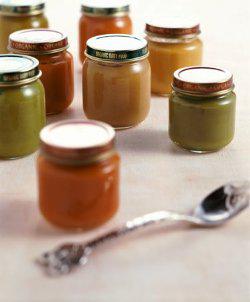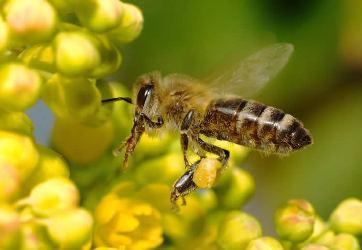


Submitted by
Beth Farrah, SMT Writer
While summer vacation is a time to kick back, relax and enjoy the sun, your time away from home can leave the place vulnerable. By taking a few preventive measures to keep your house safe while you’re gone, you can make the most of your vacation and give yourself a little peace of mind. Here are some tips on how to stay safe while you’re away this summer.
Don’t Tip Off Thieves
While most people will take some basic preventative measures to avoid tipping off thieves — like having a neighbor come over to pick up the mail, look in every now and then and, maybe, mow the lawn — this often isn’t enough to stop a determined crook. Here are some extra measures you can take to make sure criminals don’t break in while you’re away.
Keep it Secure: Many people leave their garage door openers in the cars, and thieves know this. With a swift smash of a window, that parked car in your driveway has given them access to your garage. Make sure you hide your garage door opener — good advice even when you’re not on vacation. While you’re at it, make sure to remove any extra keys you have stashed away. You might think your hiding spot behind the drainpipe is ingenious, but a clever thief often knows right where to look.
Use Technology to Your Advantage: While you can get a friend to occasionally check in, you can put your smartphone or tablet to work to give you realtime surveillance around the clock. The Dropcam is a wifi-enabled security camera that allows you to stream video directly to Android and Apple devices and can even send you alerts to your phone when something is wrong.
For a fuller security system, you can also check out Lowe’s Iris smart home system, which includes video surveillance, motion sensors, door and window sensors, and a door lock, all of which you can control and monitor from your phone.
If you already have a monitored home security system, check with your provider to see if they have an app that allows you to check in on your home. Many, like ADT’s Pulse will allow you to extend your home security system’s features, giving you access to check in while you’re on the go.
Preventing Disaster
Thieves aren’t the only thing you have to worry about while you’re away. Disaster can also strike, leaving your house damaged or destroyed. However, you can take steps to mitigate potential problems.
Check Your Water Heater: A water heater can go at any time, but if it occurs while you’re away for a few weeks, clean up and repairs can cost tens of thousands of dollars. Unfortunately, there’s no surefire way to know when a water heater might start leaking, but you can check for some common signs that disaster is imminent. Big leaks often start as small leaks, which many people don’t notice until it’s too late. Look for any drops of water, as well as rust or corrosion around the edges of the tank.
Unplug Before Your Leave: Black outs and brown outs can be common in the summer months, especially when a sudden heat wave puts a lot of pressure on the local power grid. When the power comes back on, the resulting surge can harm delicate electronics. So before you head out on your big vacation, make sure to unplug your gadgets.
Turn Down Your Air Conditioner (But Don’t Turn It Off): To save money, many people might be tempted to turn the air conditioner off entirely while they are out of town. The problem is that in humid summer weather, your hot, sealed-up home can quickly become a breeding ground for mold — not a fun thing to return to after your vacation. By setting the thermostat at 85 degrees, you’ll keep the heat and humidity in check without costing you a fortune to run it while you’re away.
Written by: Adam Verwymeren, FOX News

Written by
Beth Farrah, SMT Writer
After six years of various definitions of “gluten free” the Food and Drug Administration is finally defining what the commonly used phrase means. Before last week, customers never actually knew what the term meant, since it did not have a secure meaning. Manufacturers were allowed to create their own “gluten free” products, so customers might have been receiving a large range of different products from different manufacturers that had different ingredients and different amounts of gluten.
The Food and Drug Administration finally announced on Friday that products labeled and sold as “gluten free” products do not exactly have to be gluten free at all. The products do not have to be free of wheat, barley, or rye, but they do have to be less than 20 parts per million of gluten. This has been considered as a low enough amount so that the health of citizens with celiac disease will not be effected or made sick by these products they consume.
Celiac disease is among around three million Americans and causes abdominal pain, diarrhea, and bloating. When a person with this disease eats gluten, they suffer from sudden weight loss, fatigue, long-term medical problems, and various rashes. This disease is linked straight to gluten, where a person’s body is not able to break it down properly, causing many problems throughout the body.
"Adherence to a gluten-free diet is the key to treating celiac disease, which can be very disruptive to everyday life," FDA Commissioner Margaret A. Hamburg said. "The FDA’s new ‘gluten-free’ definition will help people with this condition make food choices with confidence and allow them to better manage their health."
The new rule also makes sure that the manufacturer labels their products correctly so there are no misinterpretations for the consumer. Products with labels such as gluten free, no gluten, or without gluten will have to meet the FDA standards under the new rule.
"Without clear ingredient information and a definitive labeling standard, celiac consumers are playing Russian roulette when it comes to making safe food choices," said Levario. "This will eliminate confusion for the consumer and will cut down on calls to companies to try and determine whether their products are safe and gluten free."
Even before the new rule was proposed, gluten free products have caused an uproar across the country. People have claimed that these products have created a healthier lifestyles for them and their families, even though they do not have celiac disease. The new rule has ensured healthier products and healthier Americans.

Written by
Beth Farrah, SMT Writer
Summer is filled with long, hot days spent by the water. Families gather around pools, lakes, water parks, and rivers in an attempt to cool down during the warm months of summer. Families and parents that enjoy water-related activities but have younger children must be aware of the many dangerous factors.
Sadly, drowning is the second leading cause in death among children between the ages of one year old to eighteen years old. Over the past couple of decades, drowning has declined drastically, but it is still a major concern for parents with children of all ages.
"Children can drown in even the smallest body of water, including toilets, decorative fountains, portable pools, buckets and bath tubs," Dr. Wendy Pomerantz, an emergency-room physician at Cincinnati Children' Hospital Medical Center, said in a hospital news release. "Anytime you have a standing body of water that is accessible, make sure you supervise your child at all times."
Dr. Wendy Pomerantz, along with the American Academy of Pediatrics recently revised a list of helpful tips for parents while spending time in the water with their kids.
First and foremost, all guardians should know CPR. It is a simple and easy to learn precaution to ensure that all swimmers will be safe in the area if help is not available nearby.
Swimming lessons taught by professionals are highly recommended for children in their younger years. Even if a parent decides to teach their child how to swim in the comfort of their own pool or home, it is not guaranteed that the child was taught properly and may not be able to take care of themselves in the water.
Never leave children alone in the pool, even if they are secure with flotation devices. Even if the children are not in the water, they still must be supervised when they are around or near any type of water. A good way for a parent to protect their child is to remember “touch supervision”, which is where the parent is no more than an arm’s length away.
Never leave toys in or nearby the pool. A child may get distracted by the toy and may fall in while they are trying to reach it. Always keep a phone nearby the pool so that help can be called right away if an accident does somehow happen. Make sure the children understand that there is no running, jumping, or pushing near the pool. The more children know about water safety, the safer they will be.

